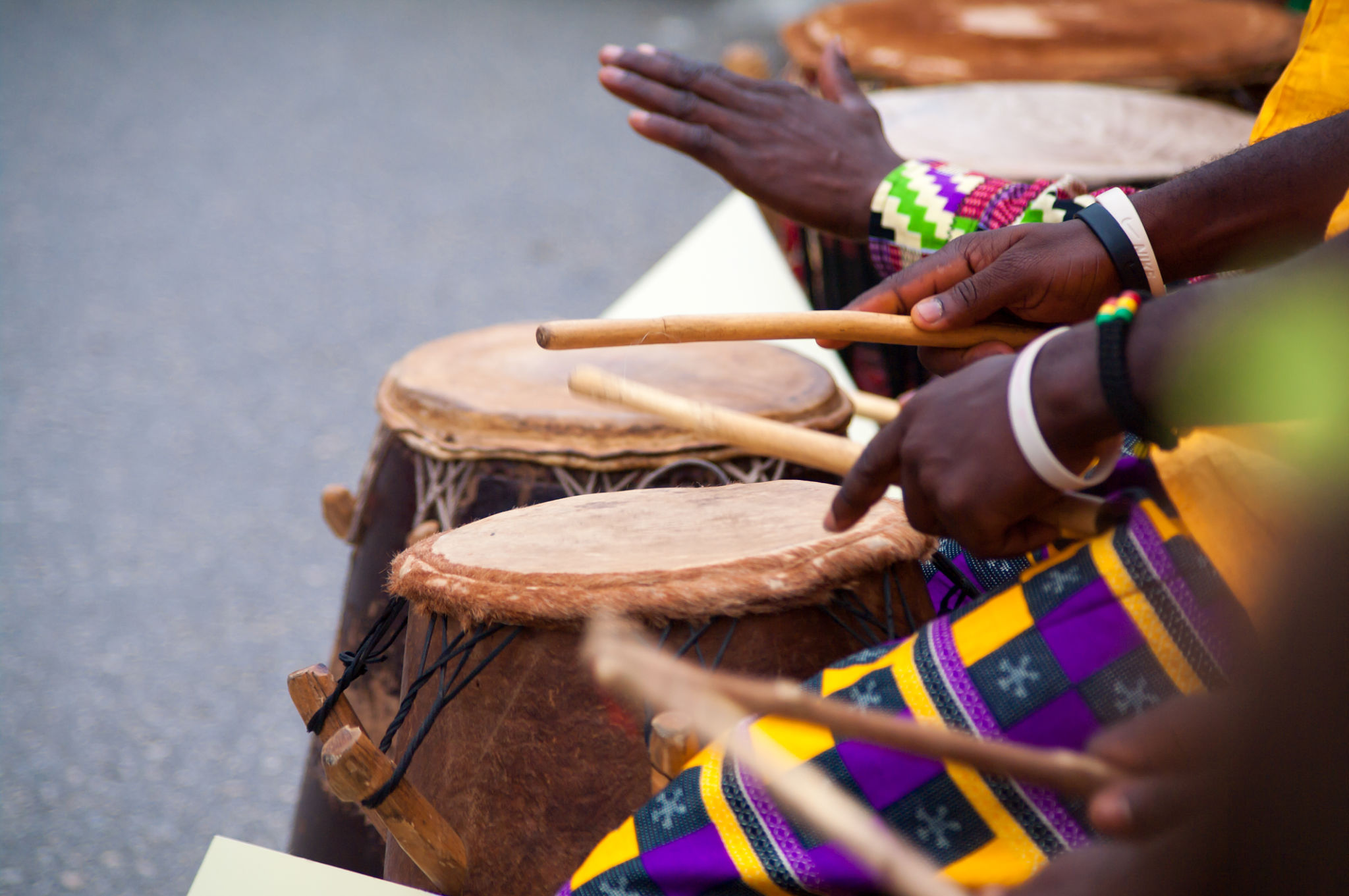How to Choose the Perfect African Drum for Beginners
Understanding the Basics of African Drums
When starting your journey into the world of African drums, it's essential to understand the variety and cultural significance these instruments hold. African drums come in many shapes and sizes, each with its unique sound and history. Recognizing these differences can enhance your appreciation and help you make an informed decision.
Among the most popular types for beginners are the djembe, bongos, and congas. The djembe, originating from West Africa, is known for its wide range of tones and is often used in group settings. Bongos, smaller and more portable, offer a higher pitch that complements other instruments well. Congas, typically played in pairs, provide deep and resonant sounds.

Choosing the Right Drum Size
Size matters a lot when selecting an African drum. Beginners should consider choosing a drum that matches their physical stature to ensure comfort while playing. For instance, djembes come in various sizes, suitable for both children and adults. A good rule of thumb is to select a drum that sits comfortably between your legs or under your arm when seated.
Bongos are a great choice for children or those with limited space, as they are smaller and easier to handle. On the other hand, if you're drawn to the rich, deep sounds of congas, start with a smaller model to ease into the technique without overexerting yourself.
Material and Quality Considerations
The material from which a drum is made significantly impacts its sound and durability. Traditional African drums are often constructed from wood and animal skin, providing authentic, rich tones. However, modern options using synthetic materials are available, offering durability and weather resistance.

When choosing a drum, inspect the quality of construction. Look for smooth finishes on wooden drums and check that the drumhead is taut and well-secured. Quality drums will generally offer better sound resonance and last longer, making them a wise investment for any beginner.
Exploring Your Budget Options
Your budget will play a crucial role in determining the type of African drum you can purchase. While it may be tempting to opt for cheaper options as a beginner, investing in a well-made instrument can enhance your learning experience and provide better sound quality.
Consider setting a budget range that allows you to explore both beginner-friendly drums and those slightly above entry-level. This approach provides flexibility, ensuring you find a drum that meets both your financial limitations and musical aspirations.

Testing Before You Buy
Whenever possible, try to test different drums before making a purchase. Hands-on experience will give you a feel for the instrument's weight, comfort, and sound quality. Visit local music stores or attend drumming workshops where you can try various models and get advice from experienced players.
In conclusion, choosing the perfect African drum involves understanding the types available, considering size and material preferences, setting a realistic budget, and testing options when possible. By taking these factors into account, beginners can find an instrument that not only suits their needs but also inspires their musical journey.
